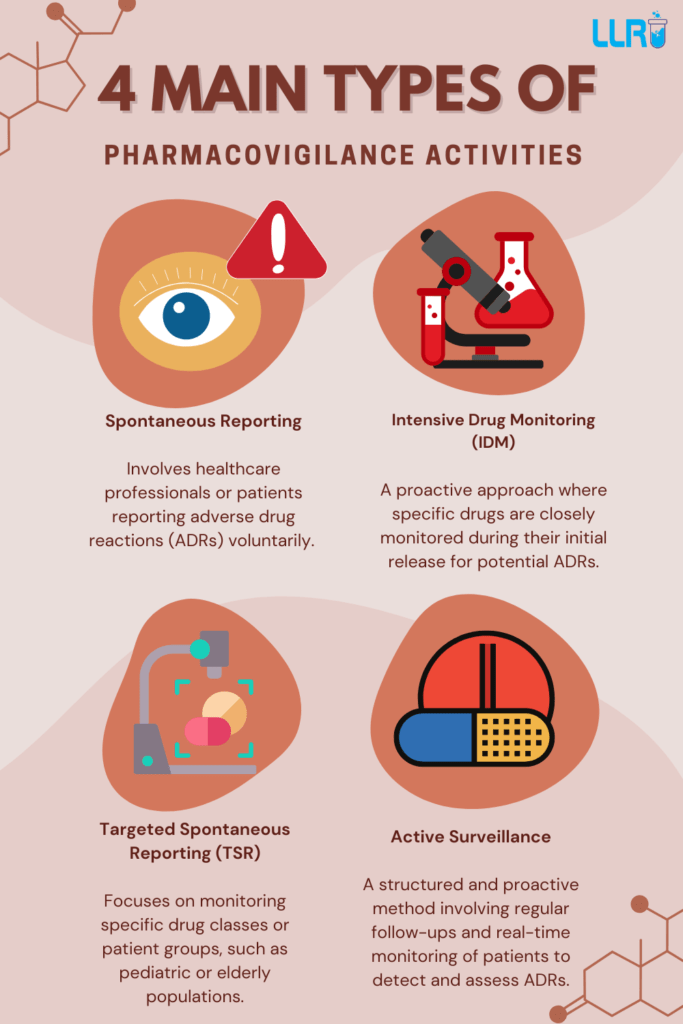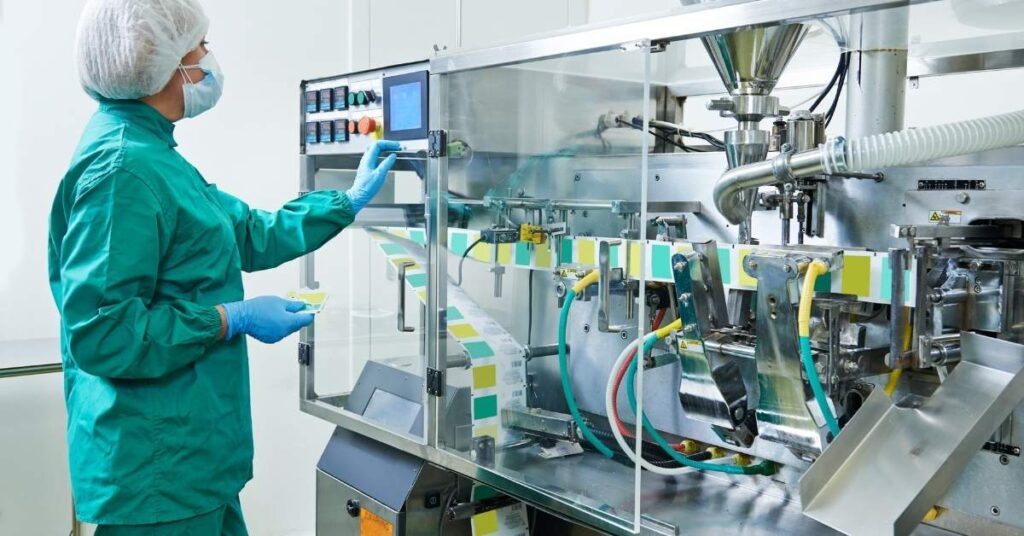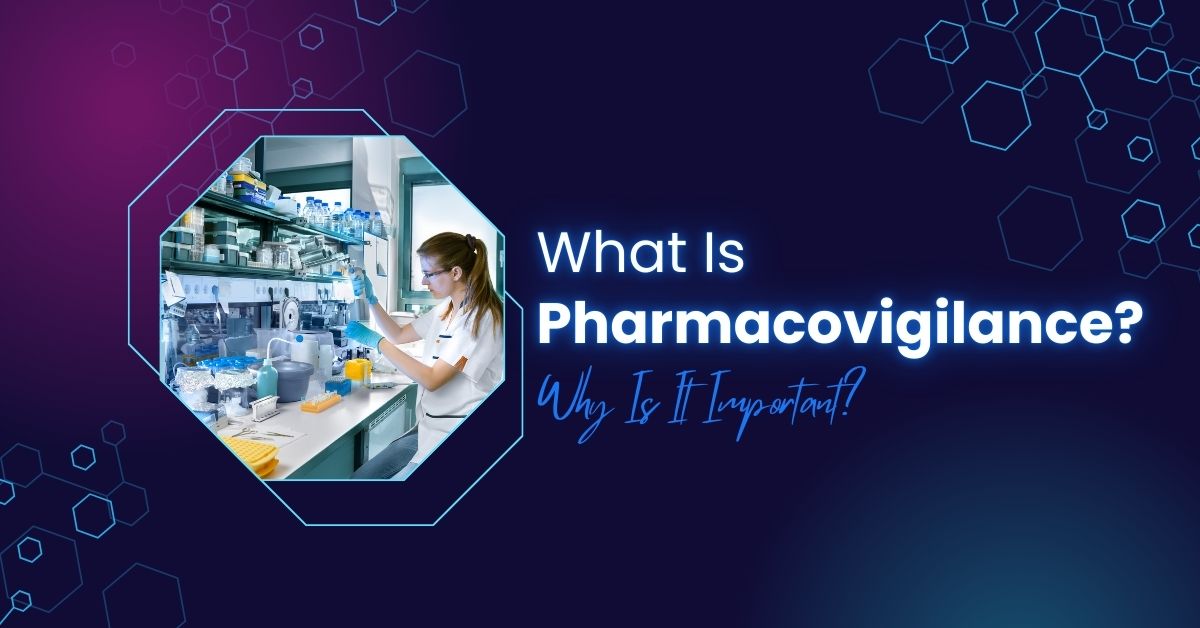What Is Pharmacovigilance And Why Is It Important: Pharmacovigilance is the process of monitoring the safety of medicines and plays a critical role in reducing the risks and improving the benefits of medicines.
In simple terms, pharmacovigilance refers to the science and activities related to the detection, assessment, understanding, and prevention of adverse effects or any other drug-related problems. But why is pharmacovigilance so important?
What Is Pharmacovigilance and Why Is It Important?
Pharmacovigilance helps in identifying, monitoring, and analyzing any adverse effects of medicines that might not have been detected during clinical trials. By continuously assessing drug safety even after approval, pharmacovigilance assures that public health is protected. This science aims to detect side effects, assess their significance, and makes sure that medicines available in the market are safe for consumption.

What are the Types of Pharmacovigilance?
Pharmacovigilance is an extensive field that can be categorized into several types, each focusing on different stages of the drug’s life cycle. Here are some of the key types of pharmacovigilance:
- Pre-marketing pharmacovigilance: This type focuses on identifying potential safety concerns in drugs during clinical trials. Data collected during Phase I-III clinical trials are analyzed for any adverse reactions.
- Post-marketing pharmacovigilance: After a drug is approved and released to the market, this phase monitors its safety through various surveillance systems like the spontaneous reporting system (SRS) or cohort studies.
- Risk management pharmacovigilance: This involves identifying, assessing, and mitigating risks associated with pharmaceutical products. It’s designed to minimize adverse events and ensure that the benefits outweigh the risks.
- Pharmacovigilance in clinical trials: During clinical trials, pharmacovigilance is crucial in ensuring the safety of participants and monitoring any side effects, even before a drug reaches the market.
Why Pharmacovigilance is Important?
The importance of pharmacovigilance cannot be overstated. Pharmacovigilance saves lives and helps build trust in the healthcare system by ensuring that all drugs on the market are thoroughly tested for safety. Here are some reasons why:
- Monitoring drug safety: It ensures that any harmful side effects of a drug are detected early and communicated to the public.
- Protecting public health: By assessing the risk-to-benefit ratio of medications, pharmacovigilance ensures that only safe medicines are prescribed.
- Preventing drug-related harm: It helps in identifying and reducing drug-related harm, which may include adverse drug reactions (ADRs) and medication errors.
What is the Scope of Pharmacovigilance?
Now that we’ve answered what is pharmacovigilance and why is it important, let’s explore its scope.
Pharmacovigilance holds a broad scope across various sectors:
- Regulatory authorities: Government agencies, like the FDA (Food and Drug Administration) or CDSCO (Central Drugs Standard Control Organization), depend heavily on pharmacovigilance data to approve and monitor drugs.
- Pharmaceutical companies: Pharmaceutical companies rely on pharmacovigilance for safety monitoring and to improve drug formulations.
- Healthcare providers: Doctors and pharmacists use pharmacovigilance data to assess drug safety and provide better care to patients.
- Patients: Patients benefit from pharmacovigilance through early identification of drug-related risks, ensuring better treatment outcomes.

What are the Aims of Pharmacovigilance?
The primary aims of pharmacovigilance include:
- Detecting ADRs (Adverse Drug Reactions): Early detection of adverse drug reactions that may not have been identified during clinical trials.
- Ensuring drug safety: Assessing the risks and benefits of drugs in real-world settings to ensure that patients are not harmed by potentially dangerous drugs.
- Providing data for regulatory authorities: Ensuring that adverse events are reported to authorities so they can decide if the drug needs to be recalled or restricted.
How Does Pharmacovigilance Work?
Pharmacovigilance involves a complex system of activities, starting from reporting adverse reactions to analyzing data, which feeds back into the drug development process.
- Data collection: Reports on adverse effects are collected through healthcare professionals, patients, and pharmaceutical companies.
- Signal detection: This phase involves identifying patterns in the collected data to detect potential safety signals.
- Risk assessment: The identified risks are assessed for their severity and likelihood, and necessary actions are taken.
- Regulatory actions: If a significant risk is identified, the regulatory authorities may decide to withdraw, restrict, or label the drug with a warning.
What about Career Opportunities in Pharmacovigilance?
With its increasing importance in the pharmaceutical industry, the scope of pharmacovigilance offers ample career opportunities, especially for those trained in the field. Here are some roles available in pharmacovigilance:
- Pharmacovigilance Associate
- Drug Safety Officer
- Pharmacovigilance Manager
- Clinical Research Associate (CRA)
If you’re interested in pursuing a career in pharmacovigilance, you can enroll in a clinical research course at LLRI, one of the best institutes for PG diploma in clinical research in India. LLRI offers training in pharmacovigilance as part of its clinical research programs.
LLRI Courses on Pharmacovigilance
At LLRI (Learning Labb Research Institute), students gain hands-on training in pharmacovigilance in clinical trials, data collection, signal detection, and risk management, making them highly employable in the growing pharmaceutical and healthcare sectors.
Why Choose LLRI?
- Best clinical research training: LLRI offers a clinical research training center where students get the necessary skills to work in pharmacovigilance and other critical areas.
- Affordable clinical research course fees: LLRI provides affordable clinical research course fees for students looking to enter the industry without financial strain.
- Industry connections: The clinical research training at LLRI connects students to top pharmaceutical companies, improving placement opportunities.
On A Final Note…
So, what is pharmacovigilance and why is it important? It’s very important for ensuring drug safety, protecting public health, and maintaining trust in the healthcare industry. The scope of pharmacovigilance is vast, and its importance continues to grow as the pharmaceutical industry expands. The types of pharmacovigilance cover various stages of a drug’s life cycle, from pre-marketing to post-marketing surveillance.
With a career in pharmacovigilance, you’ll play a key role in safeguarding public health. If you’re interested in pursuing this dynamic field, consider enrolling in LLRI’s clinical research courses, where you’ll receive the training and expertise needed to succeed in the pharmacovigilance sector.

FAQs
-
What is the scope of pharmacovigilance?
The scope of pharmacovigilance includes monitoring the safety of drugs, detecting adverse drug reactions, managing risks, and ensuring that only safe medicines reach the public.
-
Why pharmacovigilance is important in clinical trials?
Pharmacovigilance in clinical trials ensures that any potential risks associated with a drug are detected before it reaches the market, ensuring safety for the general population.
-
How can I pursue a career in pharmacovigilance?
You can pursue a career in pharmacovigilance by enrolling in a clinical research training program at a reputable institute like LLRI, where you’ll receive hands-on training and industry exposure.

